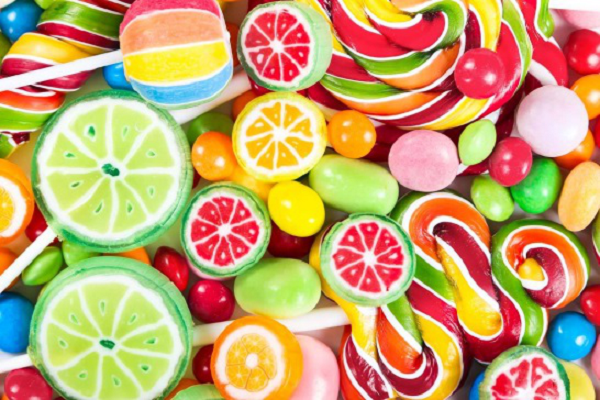The high temperature season is the peak period of the breeding industry, and it is also the period of high incidence of diseases and insect pests. At the same time, it is also a season of frequent natural disasters. How to make a smooth transition to the hot season is a top priority for the aquaculture industry.
First, pay attention to do a good job of water quality management in hot season
"Water" is the lifeblood of the industry and doing a good job in water quality management is the most important task in high-temperature seasonal aquaculture.
1, artificial cooling method. To lower the temperature of the water, instead of relying on "air conditioning" and "fans", artificial water can also be used to reduce the water temperature. Its approach is: ○ 1 in the top of the intensive pool, covered with a layer of black shade cloth, that shade cloth can be ventilated and breathable, but also can block direct sunlight, increase the coolness of the water surface, so that the water temperature can be reduced by 1 °C ~ 2 °C or so. ○2 Sewage and water change in advance. The normal sewage and water change are at 8am in the morning, and the high temperature season can be advanced to 6am in the morning because the water in the nighttime is cooler than during the day and when the water temperature is low, the sewage can be replaced. This can also reduce the water temperature. purpose. ○3 Increase the water level. During the hot season, regardless of whether it is earthen ponds or intensive breeding ponds, the water level will be raised to the highest limit. The high water level, the large space in the water body and the slow rise in temperature are also good ways to cool down. ○ 4 increase the amount of water, when the highest temperature in the noon, the use of wells or deep wells to add some cold water to the pool, but also can obviously receive the cooling effect.
2, flood elimination method. The high temperature season is also a frequent season of heavy rain. The breeding farms often cause flooding due to flooding into the pool, resulting in many diseases such as insect pests and grubs. How to prevent floods from entering the pool: â—‹1 Where there is heavy rain, no feeding, no sewage, Do not change the water, preferring to feed less, not risking the use of floods. â—‹2 What happens if there is a small amount of flood in the pool? Once the pond is flooded with a small amount of water, use potassium permanganate 1.5ppm to adjust water quality, or use quicklime 15-20ppm to improve water quality. You can also use water purification treasure 3ppm to purify water quality. â—‹3 Adjust the time for changing the sewage and water changes, staggering the chance of direct contact with the flood. During the flood period, it was sometimes possible to change the sewage beforehand, and sometimes it was also possible to postpone the discharge of sewage and water, and it was not subject to routine restrictions to avoid flooding into the pool. â—‹4 How to deal with massive floods? Once there is a lot of flooding in the pool, the feed must be stopped first, then cleaned up with a water quality improver like Haizhongbao, and finally detoxified, sterilized, and disinfected with potassium permanganate 2 ppm + insecticide 2#.
Second, do a good job of disease prevention and control work in high temperature season
Due to the formal implementation of Japan’s “positive listâ€, the pressure on feeding and breeding industry has increased, especially in high temperature seasons. It is more difficult and demanding. In this case, we should do a good job in preventing diseases. jobs.
1, control the bait rate. During the hot season, the squid feeds well, and it is easy to cause overfeeding. Once it is overdose, the liver load of squid increases, and the autoimmune function naturally declines. In the hot season, it is easy to cause enteritis or other diseases. Therefore, special emphasis should be placed on bait control during this period. Under normal circumstances, the bait is controlled at 8-9 points, and in the hot season it is controlled at 6-7 points.
2, high temperature season disinfection and medication are different from usual. As the temperature rises, the temperature of the water also rises, and the effect of the drug is different at different temperatures. For example, chlorine-containing disinfectants can double their efficacy when the water temperature is 10°C higher. In addition, the high temperature season carp is very sensitive to drugs, because the carp itself does not have thermoregulatory function, body temperature changes with the water temperature changes, so carp sensitive to drugs, and drugs sensitive to water temperature, so the high temperature season medication is usually half or three times two.
3, the high temperature season with Chinese herbal medicine to prevent and treat diseases. Chinese herbal medicine is a treasure chest of the Chinese nation. Chinese herbal medicine is not affected by temperature and has no drug residues. It is the ideal medicine for the aquaculture industry today. Here are two Chinese herbal medicines recommended for prevention and treatment of hot-season carp disease: â—‹1 Prevention of enteritis disease (feed per kg): Coptis 2g, honeysuckle 5g, Banlangen 5g, Houttuynia 5g, purslane 5 grams, 5 grams of Bidens gracilis and 3 grams of wild medlar, and the wolfberry fruit juice was fed for 7 days. â—‹2 Prevention of gingivitis: Coptis, rhubarb, andrographis paniculata, Banlangen, 5 ppm of Chinese gallnuts, and the vinegar juice was poured and kept for 18 hours.
Chinese herbal medicine is not only a good medicine for disease prevention and treatment of carp in high temperature season, but also avoids drug residues and responds to the “positive list†to create the best medicine for food safety production.
Third, the high temperature season attaches great importance to disaster prevention and disaster relief work
Every year in the high-temperature season, it is also a season of natural disasters, especially in the coastal areas, where typhoon storms frequent frequent visits. In this period, we should attach great importance to disaster prevention and disaster relief.
1. Prepare for peace in time and prepare for trouble. The breeding industry is a front-line industry that is close to the natural world. The first-line aquaculture personnel must first have the ideological awareness of disaster prevention and disaster prevention. Second, they must establish a rescue plan for natural disasters and necessary material preparation. At the same time, Understand the local flood season and maintain close contact with local authorities. In the disaster-prone season, special attention should be paid to the meteorological department's weather forecast.
2. What should the typhoon do? The typhoon came and destroyed the insulation shed and power facilities in the breeding farms. The usual response is to fix the plastic film of all the insulation sheds in the stadium before the typhoon arrives, and to maintain the power facilities on the site.
3, how to do after the typhoon after the flood outage? Because natural disasters often cause severe damage to power facilities, power outages usually occur after a typhoon. What if your on-site generators are damaged? The most effective solution is to use oxygenating agent or to release all the water in the culture pond, only to keep the water level of 10-15 cm, because the squid can use the skin to breathe air, when the oxygen in the water body, just put the water out When the eel emerges from the water, it will be safe and sound. If you do not take these measures, or do not know how to take these measures, then the loss will be heavy. Sometimes a word or a phone call can save a huge loss in a breeding farm.
The hot season is not terrible. As long as you deal with it carefully, you can make a smooth transition. (Fujian Tianma Feed Co., Ltd. Cheng Chengjian)
The human tongue has a range of specific taste sensation neural receptors called taste receptors which are organized mainly as papillae on the tongue. When stimulated by chemicals, natural or synthetic, organic or inorganic, cations or anions, the receptors send signals to the brain which interprets the stimulations as sweet, bitter, sour, salty, and savory (unami, meaty taste). For examples, cations such as Na+ present in the table salt evoke the salty taste, and H+ presents in acids evokes a sour taste. Organic compounds such as sugars, dextrins and glycerol result in sweet taste, glutamate results in savory taste, while many toxic compounds such as nicotine, morphine, caffeine, quinine, etc. result in bitter taste. The sensation of tastes is an evolution trait for defense against poisons (normally evoke bitter taste), and for allowance of nutrients intake (normally evoke sweet or savory taste).
Sugar is a natural sweetener as well as a nutrient consumed in vast quantity around the world. It is one of the major calorie intakes by humans. Over consumption of sugar often leads to obesity and other related medical conditions. High blood sugar level (hyperglycemia) is a manifestation of the disease diabetic mellitus; if not managed properly, it could lead to a range of medical complications. To combat these medical conditions, high potency Sweeteners with no calorie or low calorie intake are often being used to substitute sugar. Proper control of calorie intake, coupled with the use of these sugar substitutes has been very effective in managing the medical conditions.
Besides the medical indications, using sugar substitutes brings the economic benefit of lowering the cost of many foods and consumer products, from soft drinks to cakes, pasties, and even toothpastes.
A variety of chemical compounds, natural or synthetic, can evoke sweet taste, but not all of them are safe (for example lead acetate has a sweet taste but it is extremely toxic), nor are sweet taste specific (for examples, many of synthetic sweeteners can also evoke other senses of taste such as bitterness or metallic sensation). Therefore, selection of the right sweetener for a specific use depends not only on the cost, but also more importantly on the health and safety, the sweetening potency, the effectiveness under various physical conditions such as cooking temperature (heat stability) and pH, as well as other unwanted tense of tastes of the sweetener.
At Sunshine Biotech, we have the expertise and technical know-hows to help you make the right selection for the right use.


Sweeteners
Artificial Sweetener,Stevia Liquid,Aspartame Powder,Neotame Powder
Nanjing Sunshine Biotech Co., Ltd , http://www.sunshine-bio.com
